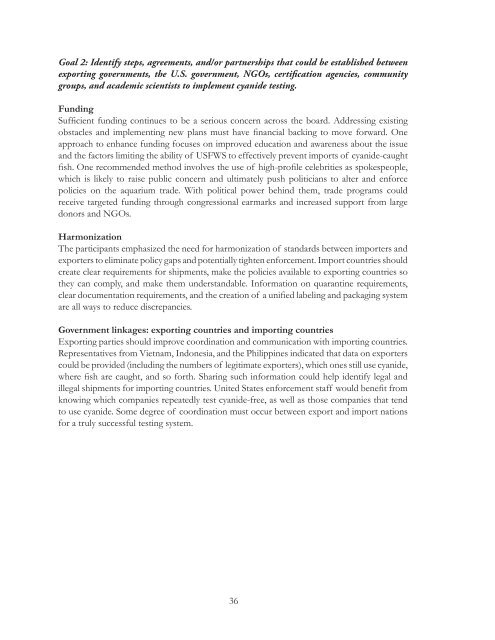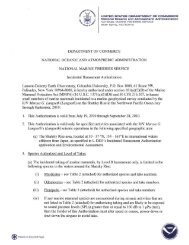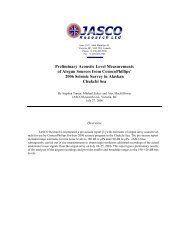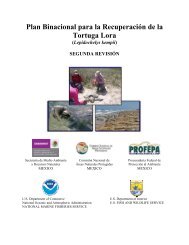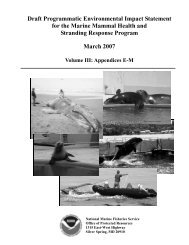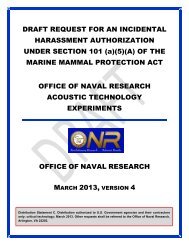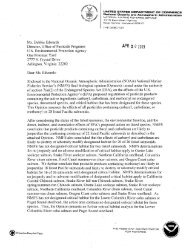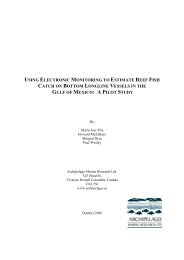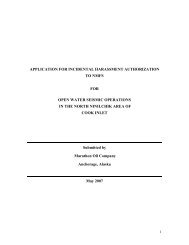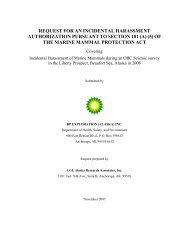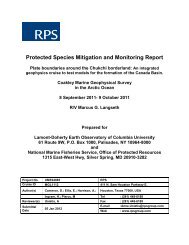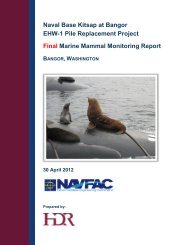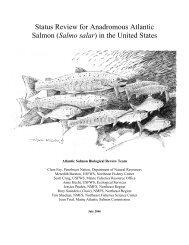Proceedings of the International Cyanide Detection Testing Workshop
Proceedings of the International Cyanide Detection Testing Workshop
Proceedings of the International Cyanide Detection Testing Workshop
Create successful ePaper yourself
Turn your PDF publications into a flip-book with our unique Google optimized e-Paper software.
Goal 2: Identify steps, agreements, and/or partnerships that could be established between<br />
exporting governments, <strong>the</strong> U.S. government, NGOs, certifi cation agencies, community<br />
groups, and academic scientists to implement cyanide testing.<br />
Funding<br />
Suffi cient funding continues to be a serious concern across <strong>the</strong> board. Addressing existing<br />
obstacles and implementing new plans must have fi nancial backing to move forward. One<br />
approach to enhance funding focuses on improved education and awareness about <strong>the</strong> issue<br />
and <strong>the</strong> factors limiting <strong>the</strong> ability <strong>of</strong> USFWS to effectively prevent imports <strong>of</strong> cyanide-caught<br />
fi sh. One recommended method involves <strong>the</strong> use <strong>of</strong> high-pr<strong>of</strong>i le celebrities as spokespeople,<br />
which is likely to raise public concern and ultimately push politicians to alter and enforce<br />
policies on <strong>the</strong> aquarium trade. With political power behind <strong>the</strong>m, trade programs could<br />
receive targeted funding through congressional earmarks and increased support from large<br />
donors and NGOs.<br />
Harmonization<br />
The participants emphasized <strong>the</strong> need for harmonization <strong>of</strong> standards between importers and<br />
exporters to eliminate policy gaps and potentially tighten enforcement. Import countries should<br />
create clear requirements for shipments, make <strong>the</strong> policies available to exporting countries so<br />
<strong>the</strong>y can comply, and make <strong>the</strong>m understandable. Information on quarantine requirements,<br />
clear documentation requirements, and <strong>the</strong> creation <strong>of</strong> a unifi ed labeling and packaging system<br />
are all ways to reduce discrepancies.<br />
Government linkages: exporting countries and importing countries<br />
Exporting parties should improve coordination and communication with importing countries.<br />
Representatives from Vietnam, Indonesia, and <strong>the</strong> Philippines indicated that data on exporters<br />
could be provided (including <strong>the</strong> numbers <strong>of</strong> legitimate exporters), which ones still use cyanide,<br />
where fi sh are caught, and so forth. Sharing such information could help identify legal and<br />
illegal shipments for importing countries. United States enforcement staff would benefi t from<br />
knowing which companies repeatedly test cyanide-free, as well as those companies that tend<br />
to use cyanide. Some degree <strong>of</strong> coordination must occur between export and import nations<br />
for a truly successful testing system.<br />
36


